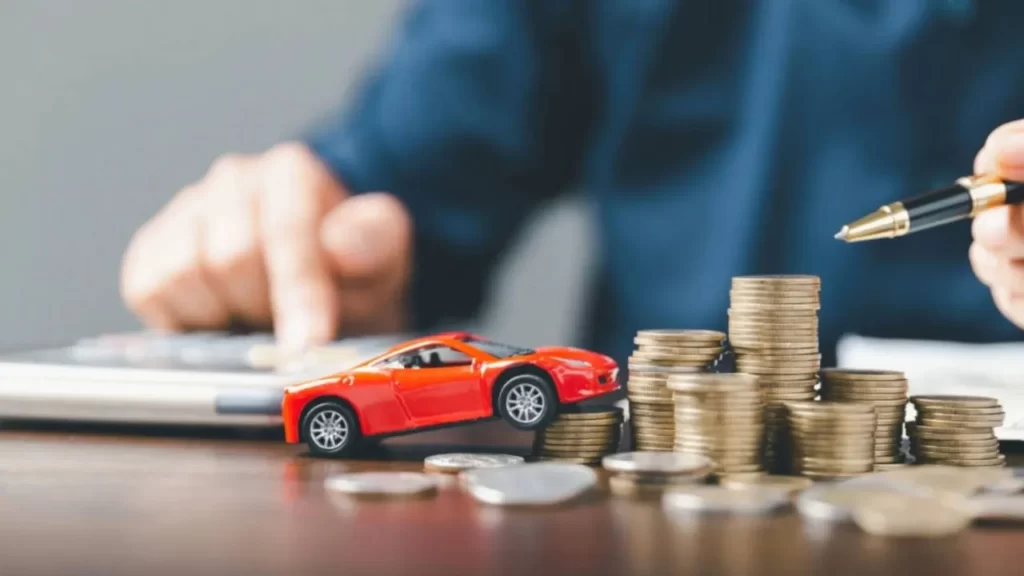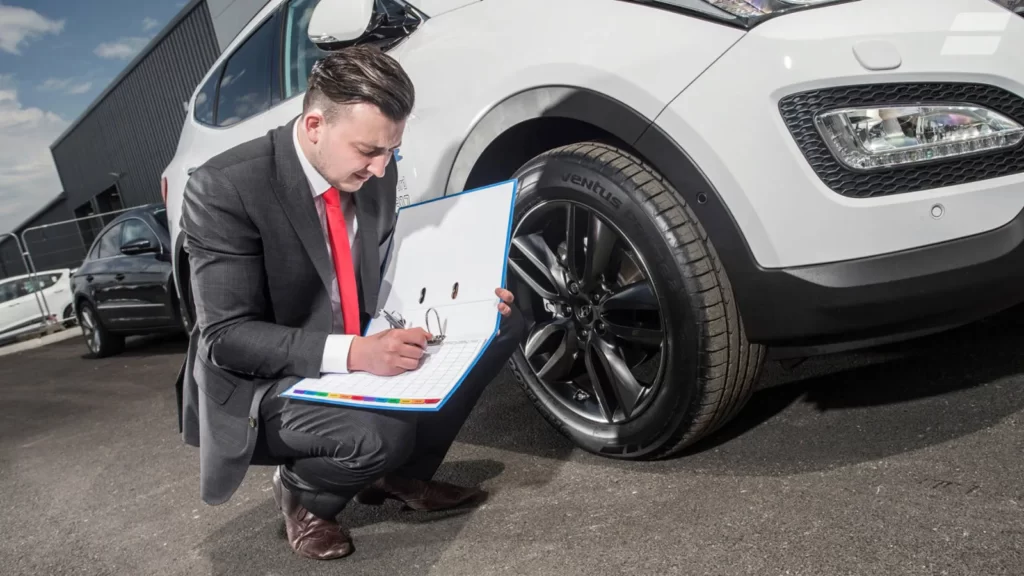Nothing quite matches that rush of a new ride. The clean dashboard. That fresh car smell. The sense of possibility the moment your hand touches the steering wheel. But buying a new car is more than just emotion. It’s a series of sharp decisions, timed moves, and sometimes even a chess match with dealerships. The car buying process is loaded with fine print, pricing puzzles, and choices that can shape your financial situation for years.

AI Quick Summary
Buying a car is a complex process that demands careful preparation and strategic decision-making beyond just emotion. To secure the best deal, thoroughly research vehicle history, set a detailed budget, get loan pre-approval, and test-drive extensively before confidently negotiating. Always read all paperwork, understand the true cost of ownership including insurance and maintenance, and beware of unnecessary add-ons to ensure a smart, long-term purchase.
This summary was generated by AI using this article’s content.
Read Next
Find Verified Vehicle Data First
Before stepping into a dealership, verify the vehicle’s background using trusted VIN tools. This helps avoid nasty surprises like unpaid loans or hidden damage. One of the most powerful resources for this is https://epicvin.com. Their vehicle history reports give you an edge when dealing with certified dealers or private sellers.
New Car Dreams or Used Car Deals?
Every car purchase starts with a question. Should it be a new vehicle or a used car? A shiny new car may offer that smooth untouched feel. But a used car might give a better deal on the purchase price, especially if depreciation has already done its damage. The total cost over time matters more than the sticker price.
| Type | Pros | Cons |
| New Car | You get the latest car models, and warranty on them | Higher price and faster depreciation |
| Used Car | Lower purchase price | Possibility of hidden issues |
Calculate Your Budget Without Guesswork
Start with hard numbers. What is your monthly payment ceiling? How much cash can go toward the down payment? This is where most buyers slip — they fall in love with a car before checking if the numbers work.

Always account for the following:
- Down Payment
- Loan
- Sales Tax
- Insurance
- Registration Fees
- Routine Maintenance
Get Pre-Approved Early
There’s power in walking into a dealer with pre-approved loan documents. It flips the script. Suddenly, you control the negotiation. Irrespective of whether it’s from a bank or credit union, pre-approval locks in your car loan rates and protects you from overpriced financing.
Tip: Compare interest rates and monthly payments from at least two sources. A credit union often offers low-interest financing compared to other financial institutions.
Don’t Just Look — Feel the Drive
A test drive is non-negotiable. A pre-purchase test drive is not a quick spin around the block. Take the vehicle on different roads, listen for rattles, feel the brake sensitivity, check the car smell, and test the tech. A test drive is your preview of living with that car every day.

Negotiate With Confidence, Not Emotion
Dealerships expect haggling. Don’t fall for the “this car is in high demand” speech. Research the model year, manufacturer websites, and offer incentives that might apply. If you mention a better deal from another dealer, watch how fast the price drops.
Use these price terms while negotiating:
- Sticker price: The suggested retail price
- Out the door price: Final amount after taxes and fees
- Sale price: After discounts and offers are applied
Ask for a breakdown and check the fine print.
Understand the True Cost of Ownership
The price you see is not the price you’ll pay long term. Add up:
- Insurance premiums
- Routine maintenance
- Gas mileage
- Depreciation rate
- Future resale value
Don’t forget about insurance coverage options like gap insurance, especially for a new car with a high purchase price.
Beware Of The Add-Ons
If you’ve agreed to the price of the car, the purchase, and the financing, watch out for extras the dealership will try to sell you. It includes the likes of paint protection, extended warranty, rust protection, etc. Some are legit. Others? Just extra money out of your pocket. Ask yourself: Will this add-on save money later, or is it just upsell pressure?

Compare Car Deals Like a Pro
Scout for new car deals on manufacturer websites. Compare offers across showrooms. Sometimes driving to the showroom an hour away, lands you a better incentive package.
Don’t ignore:
- Lease deals
- Cash-back promotions
- Trade-in car bonuses
This is one of the easiest ways to save money without any negotiations.
Inspect Before You Sign
Yes, even new cars need a final walkaround. Have the car inspected if buying from a small dealer or private party. Look for panel alignment, tyre wear, and fluid levels. New doesn’t always mean perfect.
Checklist:
- Lights and blinkers
- Windshield and glass
- Dashboard electronics
- Seat mechanisms
This is your last chance to catch an issue before the papers lock you in. Here’s a detailed guide on pre-delivery inspection.
Handle the Paperwork Without Getting Lost
The stack of documents can feel endless. Loan documents, warranty slips, testing certificates, temporary registration, and other forms. Skim nothing. Read every sentence like it hides a trap. Because sometimes it does.

Ask questions like:
- Is this the final purchase price, including registration fees?
- When will the title transfer complete?
- What’s the refund policy if the car has issues?
- Does this void my insurance coverage?
One missing signature can delay everything.
Know Your Insurance Before the Keys Touch Your Hand
No insurance? Don’t drive. Set up insurance coverage before pickup. Some insurers offer grace periods; others don’t. High insurance premiums can break your budget if ignored early.
You’ll need:
- Vehicle details (VIN, mileage, trim)
- Proof of ownership or pending title
- Payment info
Shop rates from major insurance companies. You may be qualified for safe driver or low mileage discounts. If available, add gap insurance for leased or low-down-payment cars.

Schedule Your Maintenance From Day One
Think beyond the test drive. How will you maintain this vehicle? A maintenance schedule saves you from future headaches. Plan for oil changes, tire rotations, brake pads, air filter replacements, etc. Stick to factory intervals. Keep receipts. It protects your warranty and resale value. For used cars, ask for service records.
Visiting Dealerships Without Getting Overwhelmed
Showroom lights. Soothing music. Smiling sales reps. It’s often a performance. When visiting dealerships, don’t get hypnotized. Carry a checklist. Bring a trusted person, preferably an expert in cars. Ask about model year differences and any last-minute car deals.
Pro tip: Go end-of-quarter or end-of-year. Quarterly or annual sales quotas make them more flexible.
What Happens to Your Old Car?
Trade it in? Sell it yourself? Give it to a sibling? Your old car still holds value. But dealerships often lowball. Check trade-in offers online first. Even a few hundred dollars higher offer counts toward a better deal. Keep your title, smog certificate, and remove all personal items.
Set Up Ownership Like a Boss
Keys in hand doesn’t mean you’re done. Here’s what to finalize within the first week:
- Registration transfer
- Owner’s manual read-through
- Setting up service appointments
- Review of the maintenance schedule
Put everything in a folder—digital and physical. Being organised saves time later.
Buying A Car Isn’t Just A Purchase — It’s A Plan
A car is not a product. It’s a commitment. And like any big decision, it needs homework, negotiation, and post-purchase discipline. Your car-buying journey starts long before that glossy brochure or flashy ad. Ask yourself again: What should I do when buying a new car? Everything stated above. From pre-approval to test drives, from credit union rate checks to insurance comparisons. A smart buyer isn’t just someone with money. It’s someone with a plan.
Final Thought: The Open Road Awaits
You’ve prepped, planned, and paid. Now you roll out of the lot with your new car, windows down, music up, mind clear. The open road? It’s yours. And every mile ahead will feel even better knowing you did everything right.
Find the best cars for sale in the UAE.
Stay tuned to UAE’s most popular auto blog for more automotive content.
FAQs — Buying a New Car: What People Secretly Wonder
Can I get a better deal at the end of the month?
Yes. Dealers push to hit quotas. End-of-month and end-of-quarter days can unlock quiet car deals they don’t advertise.
Is it cheaper to finance through a credit union?
Often. A credit union typically offers low-interest financing and flexible terms compared to a bank. Always compare rates from both.
What happens if I don’t read the fine print?
You risk hidden fees, unwanted add-ons, or policies that cancel warranties. Always inspect the fine print line by line.
Do I need gap insurance?
If your car loan is high or you made a small down payment, yes. Gap insurance covers the difference if your new vehicle gets totaled and your loan is still unpaid.
What is the “out the door price”?
It’s your final price, including tax, fees, registration, and dealer costs. Always negotiate based on this number — not just the sticker price.
Nothing quite matches that rush of a new ride. The clean dashboard. That fresh car smell. The sense of possibility the moment your hand touches the steering wheel. But buying a new car is more than just emotion. It’s a





